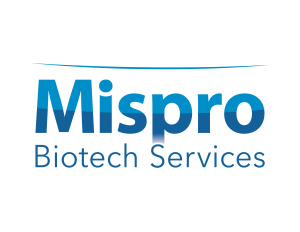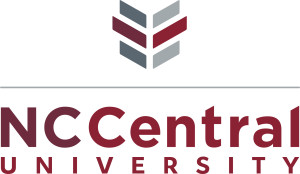IACUC 2019 is a two-day conference intended for both new IACUC members and seasoned members of animal care and use programs.
Day 1 (IACUC Fundamentals) will address key issues for successful animal care and use programs, including the roles and responsibilities of the IACUC, training and personnel qualifications, protocol review, semiannual program reviews and inspections, issues of noncompliance and corrective measures that actually work.
Day 2 (IACUC Advanced) will provide in-depth presentations and discussion during multiple plenary and breakout sessions. Plenary sessions will address harm-benefit analysis and the issues where scientific review and IACUC review overlap, resulting in substantial pressures that will result in IACUCs needing new and flexible ways of looking at their mandate and their work.
Concurrent sessions will address:
- Controlled substance use, oversight and management
- Collaborations, MOUs and grant congruency review
- Challenges in tracking animal numbers (e.g., rodent neonates, fish)
- Protocol expiration dates
- Effectively working with ancillary committees (IBC, IRB, environmental safety)
- Occupational health & safety compliance
- Considerations for alternatives: Pain categories, search requirements and the 3Rs
- Application of veterinary clinical care
- Animal biocontainment in BSL3 labs
- Field research
- IACUC oversight of invertebrates
- Methods for reducing administrative burden
- Establishing a compassion fatigue program
- Rehoming research animals
- Humane endpoints
- Best practices in program communication mechanisms
Lab Animal Research Communications Intensives — New for NCABR’s IACUC Advanced program will be the addition of multiple, optional small group communication intensive sessions. These 45-minute sessions, led by a science communications expert, will run throughout the day on April 30. Participants will work through scenarios that prepare and empower them to provide effective lab animal research advocacy.
IACUC Fundamentals (April 29, 2019)
8:00 a.m.
Check-in & Refreshments
8:45 a.m.
Welcome
Suzanne Wilkison President North Carolina Association for Biomedical Research
9:00 a.m.
Role of the IACUC in the Animal Care and Use Program: History, Ethical Responsibility, Program Players & Responsibilities
Bob Lowman, Ph.D. Workshops for Grant Writers, LLC
10:15 a.m.
Initial and Continuing Protocol Reviews
Anna Hampton, D.V.M., DACLAM, DACAW, CPIA Director, Office of Animal Welfare Assurance Duke University
11:05 a.m.
Break
11:20 a.m.
Humane Endpoints (Fundamentals)
Terry Blankenship, D.V.M. Head, Veterinary Medicine Section National Institute of Environmental Health Sciences National Institutes of Health
12:10 p.m.
Lunch
1:00 p.m.
Issues of Noncompliance
Colleen Bennett, M.S. Assistant Director, Oversight & Outreach (Animal Research) Clinical and Translational Science Institute Wake Forest School of Medicine
Jaimie Graff, M.A., CPIA Director of Animal Resources and Research Support National Health and Environmental Effects Research Laboratory U.S. Environmental Protection Agency
1:50 p.m.
Semiannual Program Reviews and Inspections
David Lyons, Ph.D. Director, Animal Welfare Program and Animal Care and Use Committee Clinical and Translational Science Institute Wake Forest School of Medicine
Miranda Moore IACUC Protocol Analyst Clinical and Translational Science Institute Wake Forest School of Medicine
2:40 p.m.
Break
2:55 p.m.
Training: What, How, Who and How Much?
Brooke Rogerson Animal Care and Use Program Coordinator Comparative Medicine Branch National Institute of Environmental Health Sciences National Institutes of Health
3:45 p.m.
Wrap-Up
4:00 p.m.
Adjourn
IACUC Advanced (April 30, 2019)
8:00 a.m.
Check-in & Refreshments
8:30 a.m.
Welcome
Suzanne Wilkison President North Carolina Association for Biomedical Research
8:45 a.m.
Harm-Benefit Analysis
Christian E. Newcomer, D.V.M., M.S., DACLAM Executive Director Emeritus AAALAC International
9:35 a.m.
Transition
9:40 a.m.
Concurrent Session #1
Option A Reducing Administrative Burden
Anna Hampton, D.V.M., DACLAM, DACAW, CPIA Director, Office of Animal Welfare Assurance Duke University
Option B Animal Biocontainment in BSL3s
Victoria K. Baxter, D.V.M., Ph.D., DACLAM Assistant Professor, Department of Pathology and Laboratory Medicine Clinical Veterinarian, Division of Comparative Medicine University of North Carolina at Chapel Hill
Option C IACUC Oversight of Invertebrates
Cecile Baccanale, D.V.M. Clinical Associate Professor/Veterinarian Department of Comparative Medicine Brody School of Medicine East Carolina University
Option D Animal Research Communications Training
(This same topic will be provided by the same speaker throughout the day. Seating is limited.)
Roger Conner Coalition for the Public Understanding of Science
10:25 a.m.
Break
10:40 a.m.
Concurrent Session #2
Option A Considerations for Alternatives: Pain Categories, Search Requirements and the 3Rs
(This same topic will be provided by the same speaker two times in a row.)
Allison R. Rogala, D.V.M., DACLAM Research Assistant Professor Department of Pathology and Laboratory Medicine University of North Carolina at Chapel Hill
Option B Applications of Veterinary Clinical Care
(This same topic will be provided by the same speaker two times in a row.)
Steven T. Shipley, D.V.M., DACLAM Associate Director of Veterinary Services Associate Professor, Pathology and Laboratory Medicine Division of Laboratory Medicine University of North Carolina at Chapel Hill
Option C Controlled Substance Use, Oversight and Management
Catherine Brennan Assistant Director Chemical Safety & Emergency Response Officer University of North Carolina at Chapel Hill
Sonia Doss Compliance Liaison Office of Animal Welfare Assurance Duke University
Option D Animal Research Communications Training
(This same topic will be provided by the same speaker throughout the day. Seating is limited.)
Roger Conner Coalition for the Public Understanding of Science
11:25 a.m.
Transition to next concurrent session
11:30 a.m.
Concurrent Session #3
Option A Considerations for Alternatives: Pain Categories, Search Requirements and the 3Rs
(This same topic will be provided by the same speaker two times in a row.)
Allison R. Rogala, D.V.M., DACLAM Research Assistant Professor Department of Pathology and Laboratory Medicine University of North Carolina at Chapel Hill
Option B Applications of Veterinary Clinical Care
(This same topic will be provided by the same speaker two times in a row.)
Steven T. Shipley, D.V.M., DACLAM Associate Director of Veterinary Services Associate Professor, Pathology and Laboratory Medicine Division of Laboratory Medicine University of North Carolina at Chapel Hill
Option C Occupational Health & Safety Compliance
Catherine Brennan Assistant Director Chemical Safety & Emergency Response Officer University of North Carolina at Chapel Hill
Kenneth R. Muller, B.A., RLATG DCM Training Coordinator University of North Carolina at Chapel Hill
Option D Animal Research Communications Training
(This same topic will be provided by the same speaker throughout the day. Seating is limited.)
Roger Conner Coalition for the Public Understanding of Science
12:15 p.m.
Lunch
1:05 p.m.
Concurrent Session #4
Option A Collaborations, MOUs and Grant Congruency Review
Rebecca Dye IACUC Grants Manager Office of Animal Care and Use University of North Carolina at Chapel Hill
Option B Field Research
Dorcas O’Rourke, D.V.M., M.S., DACLAM Attending Veterinarian Professor and Chair, Department of Comparative Medicine Brody School of Medicine East Carolina University
Option C Establishing a Compassion Fatigue Program
Colleen Bennett, M.S. Assistant Director, Oversight & Outreach (Animal Research) Clinical and Translational Science Institute Wake Forest School of Medicine
Option D Animal Research Communications Training
(This same topic will be provided by the same speaker throughout the day. Seating is limited.)
Roger Conner Coalition for the Public Understanding of Science
1:50 p.m.
Transition to next concurrent session
1:55 p.m.
Concurrent Session #5
Option A Program Communication Mechanisms
William L. Wade, LVT, RLATG, CPIA Compliance Liaison for Education and Training Office of Animal Welfare Assurance Duke University
Option B Tracking Animal Numbers
Derek Norford, D.V.M., M.S., Ph.D., CPIA University Veterinarian and Research Scientist North Carolina Central University
Option C Rehoming Research Animals
David Lyons, Ph.D. Director, Animal Welfare Program and Animal Care and Use Committee Clinical and Translational Science Institute Wake Forest School of Medicine
Option D Animal Research Communications Training
(This same topic will be provided by the same speaker throughout the day. Seating is limited.)
Roger Conner Coalition for the Public Understanding of Science
2:40 p.m.
Transition to next concurrent session
2:45 p.m.
Concurrent Session #6
Option A Protocol Expiration Dates
Anna Hampton, D.V.M., DACLAM, DACAW, CPIA Director, Office of Animal Welfare Assurance Duke University
Gabe McKeon, D.V.M., DACLAM University Attending Veterinarian North Carolina State University
Option B Effectively Working with Ancillary Committees
Antony Schwartz, Ph.D., SM(NRCM), CBSP(ABSA) Director, Biological Safety Biological Safety Officer, Duke IBC Responsible Official, Duke Select Agent Program Duke University
Matthew Stiegel, Ph.D. Associate Director, Occupational & Environmental Safety Director, Laboratory Safety Division Duke University
Option C Humane Endpoints (Advanced)
Terry Blankenship, D.V.M. Head, Veterinary Medicine Section National Institute of Environmental Health Sciences National Institutes of Health
Option D Animal Research Communications Training
(This same topic will be provided by the same speaker throughout the day. Seating is limited.)
Roger Conner Coalition for the Public Understanding of Science
3:30 p.m.
Transition back to auditorium
3:35 p.m.
Future Challenges: The Role of the IACUC in the Design and Conduct of Reproducible Animal Experiments that Contribute to Translational Success
Jeff Everitt, D.V.M. Research Animal Pathology Core Duke University
4:25 p.m.
Wrap-Up & Closing Remarks
4:40 p.m.
Adjourn
Continuing Education Details
IACUC 2019 has been approved by the North Carolina Veterinary Medical Board to offer up to 14 hours of continuing education credit. Attendance certificates will be provided at the end of each day.





